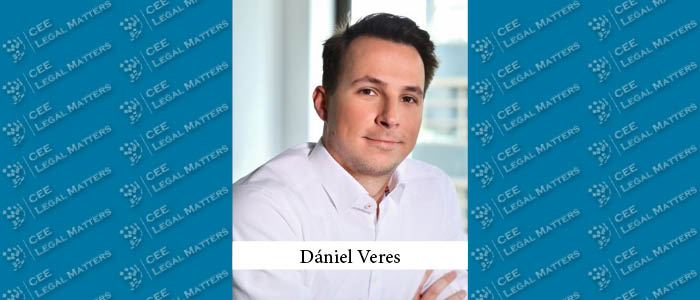As we move into yet another year with the special surtaxes in effect, the question justifiably arises: for how much longer will the extra-profit taxes, those labelled initially as temporary, encumber the Hungarian taxpayers’ declarations. Also, businesses now have to face additional burdens, such as the EPR fees, the carbon quota tax or the global minimum of the corporate income tax.
In any case, the application of the special taxes is being extended again and again, and in addition, some of these special taxes have even made it to the level of laws (from being regulated in a mere government decree). It seems, therefore, that the decline in the number of tax types that we witnessed a few years ago has been reversed in the long run: this year, compared to last year’s 59, we counted 61 types of taxes. This is yet the highest number since we started our yearly counting of Hungarian taxes.
Taxes we bade farewell to, and the new contenders
During the previous year they removed the investment firms’ and credit institutions’ transaction tax from the government decree regulating the surtaxes. (This transaction tax should not be confused with the financial transaction tax under a separate law. This latter still exists.)
Furthermore, from the beginning of this year, the registration fee for domestic work was finally abolished – but not the obligation to register! As we have written before, year after year this otherwise forward-thinking tax has failed to bring in the expected revenues.
But we have four new taxes to take the place of these former payment obligations.
Firstly, as a result of many years of OECD and EU legislation, top-up taxes have been introduced in Hungary to ensure the (global) minimum level of corporate income tax. Groups of companies with a consolidated turnover of more than EUR 750 million will be taxed on their global income at a single minimum tax rate (15%), thus preventing or at least reducing harmful tax competition between Member States.
Secondly, we considered the surtax of pharmaceutical product manufacturers as a new contender as well.
This tax is also intended to 'regulate' the special tax burdens of pharmaceutical product manufacturers with a slightly different tax base compared to that of the pharmaceutical product manufacturers’ special tax, which continues to exist under a slightly different name.
Finally, in the middle of last year the government introduced two new taxes on operators of an installation receiving a significant free allocation of CO2 emission rights: the ‘carbon quota tax’ taxes the amount of carbon dioxide emitted by the holder of the quota holder; on the other hand, the ‘carbon dioxide quota transaction fee’ taxes the trading of the quota.
Changing taxes
Some taxes were slimmed, while others’ tax bases got enriched with new items. An example of the former is the tax on utility lines which, from the beginning of the year, no longer covers communication lines. The opposite has happened with the tourism development contribution, where hop-on hop-off bus services have been brought within the scope of the tax.
In contrast to the above, the scope of NETA (tax on unhealthy aliments) has been both narrowed and widened: on the one hand, alcoholic beverages have been removed from the taxable items and two new categories of products have been added to the taxable scope. These latter are the categories of "delicacies" and "pre-packaged sweet and savoury pasta" as defined in the law.
Finally, it is also noteworthy that the rate of the soil protection contribution on the permanent repurposing of agricultural lands, calculated on the basis of the – so-called – golden crown value of the land, has tripled for all quality classes since the beginning of this year.
This time the fee is just a fee: the Extended Producer Responsibility (or EPR) policy
The EPR policy is the EU's response to rising waste emissions. Under the liability system, producers of various single-use (so-called circular) products must pay a fee for their emissions to a concession company, MOHU MOL Hulladékgazdálkodási Zrt., which organises the complete management of waste: from collection and transport to recycling or disposal. MOHU will invoice the fee on the basis of the information provided by the producers to the waste management authority.
While it is not unknown for some taxes to be referred to as a "fee" in the legislation, especially when they are specifically intended to finance a public task by way of indirect taxation (e.g. the food chain supervision fee or the gambling supervision fee), the EPR fee is not, conceptually speaking, a tax. This is because, in return, the persons liable receive a directly tangible service. And, in principle, this is so even if some dispute the equivalence between the fee paid and the service received (see below what we consider to be a tax for more details).
Naturally, the number of taxes in Hungary depends on what should be considered as one. Both everyday experience and the tax theory make it clear that not all payment obligations to the state can be considered as tax.
On one hand, there are payment obligations that directly entitle the holder to specific services or benefits - these are not taxes. Thus, for example, a procedural fee cannot be a tax, nor can, for example, a toll.
Similarly, classic social security contributions are not taxes either, because they are typically capped, i.e. their level is in principle proportional to the service received for them. It is another matter that today in Hungary social security contributions no longer work like this, so they are considered taxes.
Lastly, fines, surcharges and other penalties cannot be considered taxes either, no matter how much its one-time recipient may feel that way.
On the other hand, however, we have considered as taxes certain payments which, although not directly payable to the state, are nevertheless state-imposed payments which do not give rise to a right to compensation. A typical example of this at present is the compulsory chamber’s contribution for the Hungarian Chamber of Commerce and Industry.
They will not contribute: the industrial safety contribution
Late last year, news emerged that the government would introduce a new turnover-based tax on factories working with hazardous materials, the industrial safety contribution. Many speculated whether the measure was introduced in view of the battery factories, now shooting up like mushrooms, but the explanatory notes to the bill did not specifically mention this scenario. In any case, the new tax was not introduced in the end, so it does not enrich the number of Hungarian taxes.
Challenging years
Clearly, the economic and political context still does not allow the government to give up the revenues generated by the surtaxes. In the meantime, other developments, such as the excessive demands on the environment or the fight against harmful tax competition, are triggering additional tax legislation. It therefore does not seem realistic at present to expect a significant reduction in the number of taxes. The situation may be helped by the increasing number of ways in which the tax authorities are providing assistance to comply with tax obligations, including the possibility to ask the tax authorities to fill in VAT returns from February.
By Dániel Veres, Advisor, Jalsovszsky


